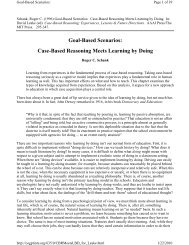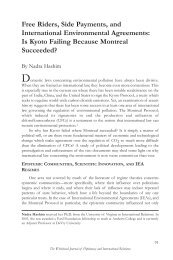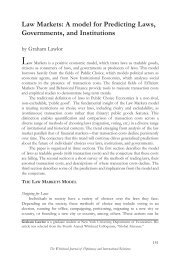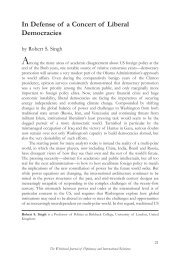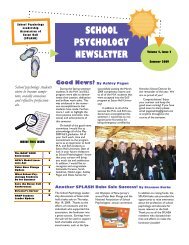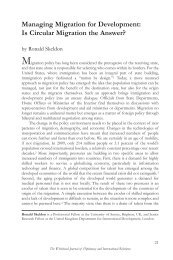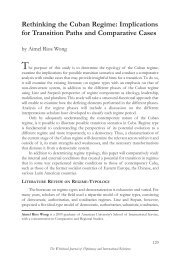fall 2007 - Seton Hall University
fall 2007 - Seton Hall University
fall 2007 - Seton Hall University
You also want an ePaper? Increase the reach of your titles
YUMPU automatically turns print PDFs into web optimized ePapers that Google loves.
FEATURE |<br />
Why would a priest, settled in<br />
a comfortable life tending to<br />
parishioners in suburban New Jersey,<br />
volunteer to become a military chaplain,<br />
intentionally thrusting himself into<br />
what could well be dangerous situations?<br />
For James Hamel, who grew up in<br />
South Orange and attended seminary at<br />
<strong>Seton</strong> <strong>Hall</strong>, it all went back to his childhood.<br />
Growing up, he spent much time<br />
overseas due to his father’s business.<br />
“In all those travels, the seed was<br />
planted, the love of travel,” said Hamel,<br />
41, who is now a captain in the Air<br />
Force and recently completed a tour in<br />
Iraq. “The willingness to move out to<br />
places that might be uncomfortable to<br />
others, that’s part and parcel of what I<br />
signed up for. I guess it’s just the wanderlust<br />
in me.”<br />
Hamel’s decision to join the Air Force<br />
was almost to be expected, according to<br />
one of his mentors, <strong>Seton</strong> <strong>Hall</strong> President<br />
Monsignor Robert Sheeran ’67, S.T.D.<br />
“Having known Jim Hamel and his<br />
family for many years, it is no surprise<br />
to me that he has chosen — and been<br />
chosen for — this ministry as a combat<br />
chaplain,” Monsignor Sheeran said. “During<br />
his formation for the priesthood and<br />
since his ordination, he has shown a<br />
strong faith and a willingness to serve<br />
that is a powerful example for all of us.”<br />
Since leaving the Our Lady Queen of<br />
Peace Parish in Maywood as an assistant<br />
pastor to become an Air Force chaplain<br />
in 2000, Hamel has served six months<br />
in Qatar ending in 2002, six months in<br />
Kuwait ending in 2005, and five months<br />
at Ali Base in al Nasiriah, Iraq, ending<br />
earlier this year.<br />
He fully expects to return to a war<br />
zone, but for now he is at Bolling Air<br />
Force Base in Washington, D.C.<br />
“I’m sure I will go back,” he said.<br />
“When it becomes my turn to go again,<br />
I’ll go. You just keep working your way<br />
to the top of the list again.”<br />
In Iraq, Hamel ministered to airmen<br />
and soldiers shaken by combat, and<br />
he had to deal with his own feelings<br />
when his base sustained enemy rocket<br />
attacks.<br />
“You just never know when the next<br />
rocket attack is going to come,” he said.<br />
“And they do come. You get used to it. We<br />
just take all the precautions we can, and<br />
if it happens, it happens.”<br />
While parts of his job are the same as<br />
at home, such as celebrating Mass, Hamel<br />
said ministering in a war zone requires<br />
a different perspective sometimes.<br />
“There’s a common bond,” he said.




